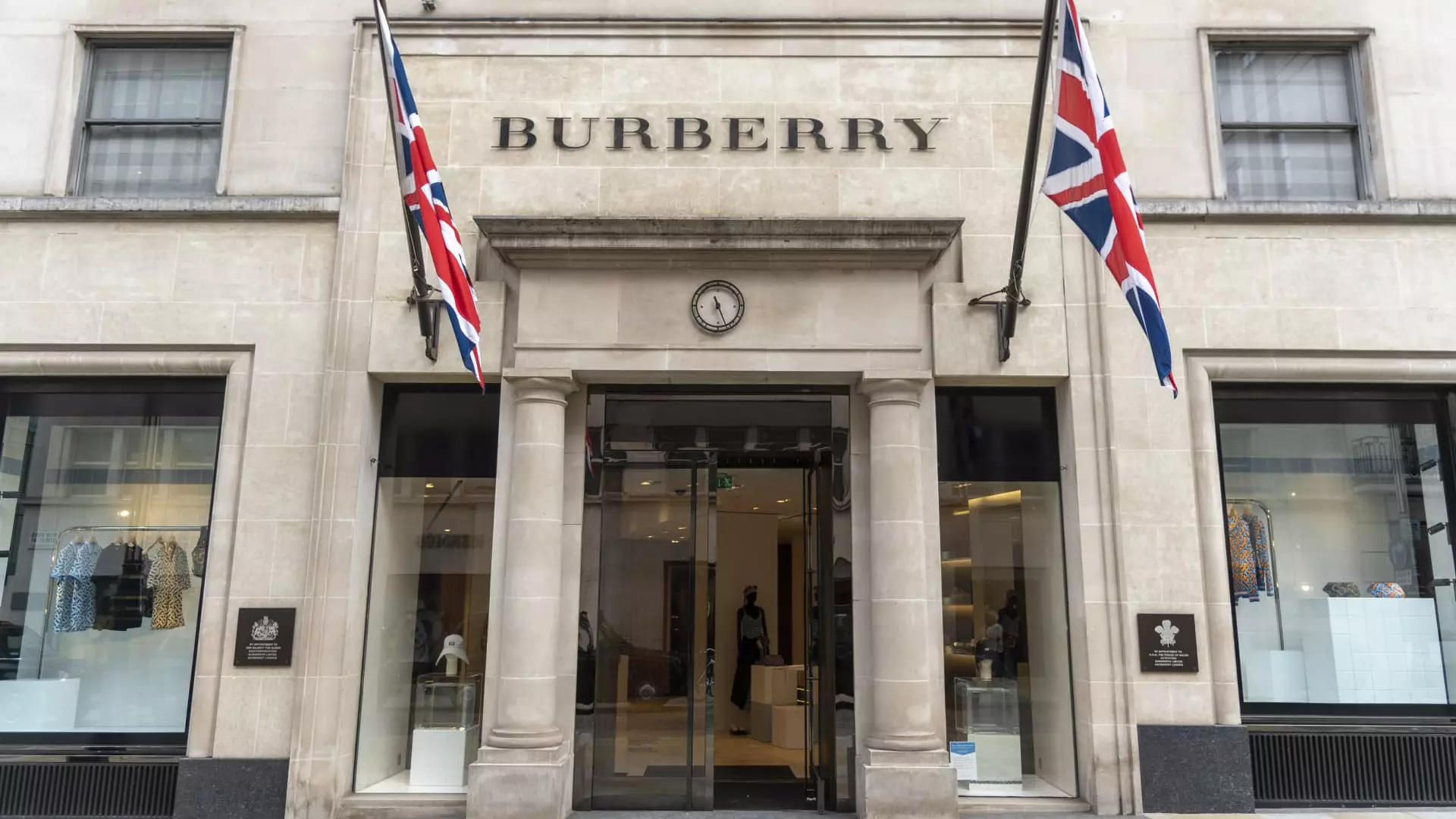Burberry Group, a renowned British luxury fashion house, faced a major setback as it dropped out of the U.K.’s FTSE 100 stock market index after a 15-year stint. The company’s downfall was attributed to waning sales, multiple management changes, and a significant decline in its share price. With a current market cap of £2.34 billion ($3.06 billion), Burberry now finds itself far behind other constituents of the FTSE 100, signaling a sharp decline in its market performance. The luxury brand, known for its iconic trench coats and check prints, has struggled to maintain its high-end image as consumer preferences shifted and the luxury market experienced a slowdown.
One of the key issues plaguing Burberry Group is the constant turnover in its top leadership positions. The appointment of four CEOs in the last decade has left investors uncertain about the company’s direction and ability to adapt to changing market dynamics. The recent appointment of Joshua Schulman as CEO signifies a potential shift in strategy towards a “British Coach” model, aimed at reducing costs, expanding outlets, and tapping into off-price retail opportunities. While this change in leadership could bring about a much-needed transformation, the market remains skeptical about Burberry’s ability to regain its financial footing.
Burberry’s financial woes have been exacerbated by a 21% decline in first-quarter comparable store sales, leading the company to issue its third profit warning in 12 months and suspend dividend payments. Analysts have raised concerns about the brand’s diminishing momentum and the possibility of further market share losses if immediate action is not taken. The company’s half-year financial results are eagerly awaited, with stakeholders hoping for a turnaround in its fortunes under the new leadership of Joshua Schulman. If successful, Burberry could potentially avoid being a takeover target and regain investor confidence.
Burberry Group is not alone in facing challenges within the luxury sector, as other prominent brands have also reported a decline in sales and revenue. Economic uncertainty, inflationary pressures, and changing consumer spending patterns have all contributed to a tough operating environment for luxury brands. Chinese luxury consumption, in particular, has been significantly impacted by the ongoing downturn. Despite these challenges, certain players in the ultra-luxe space have managed to weather the storm, emphasizing the need for Burberry to adapt quickly and efficiently to changing market conditions.
While Burberry Group’s relegation from the FTSE 100 is a significant setback, it also presents an opportunity for the company to reevaluate its business strategies and focus on revitalizing its brand image. As the luxury sector remains cyclical and prone to fluctuations, Burberry can leverage its heritage and global appeal to stage a comeback. With a fresh leadership approach and a renewed focus on consumer preferences, Burberry could potentially reclaim its position as a top player in the luxury fashion industry. However, the road to recovery will require strong leadership, strategic decision-making, and a deep understanding of market trends.

